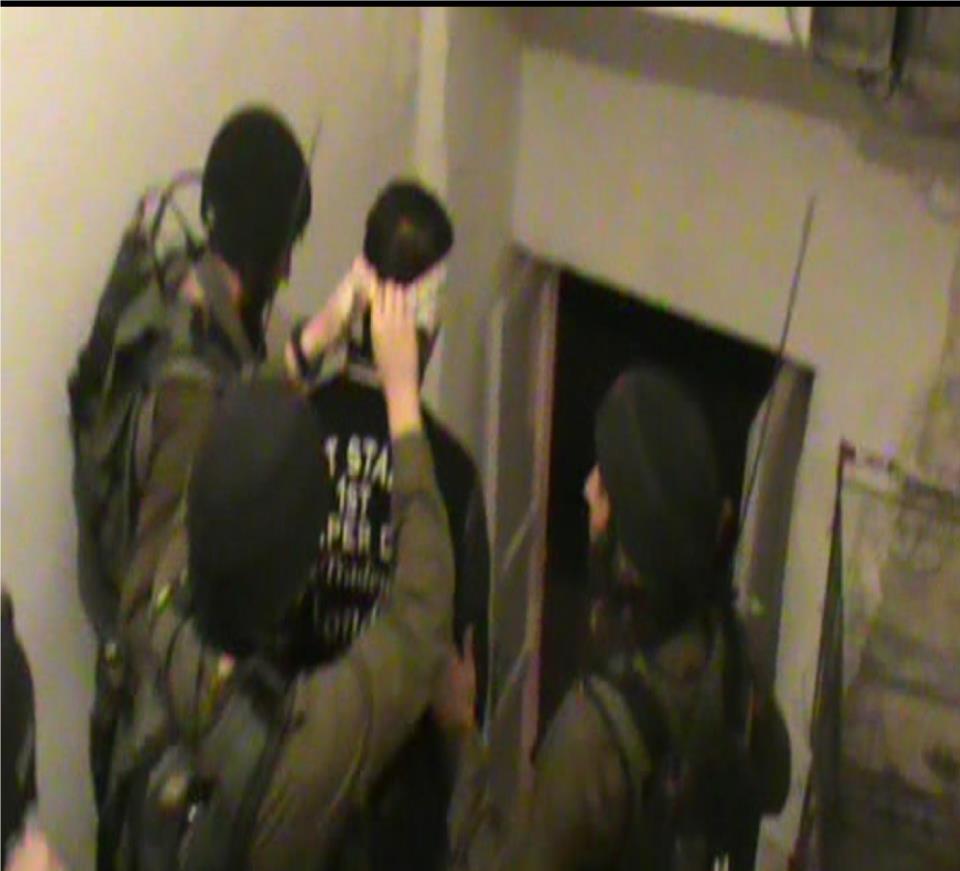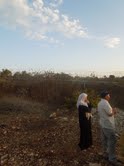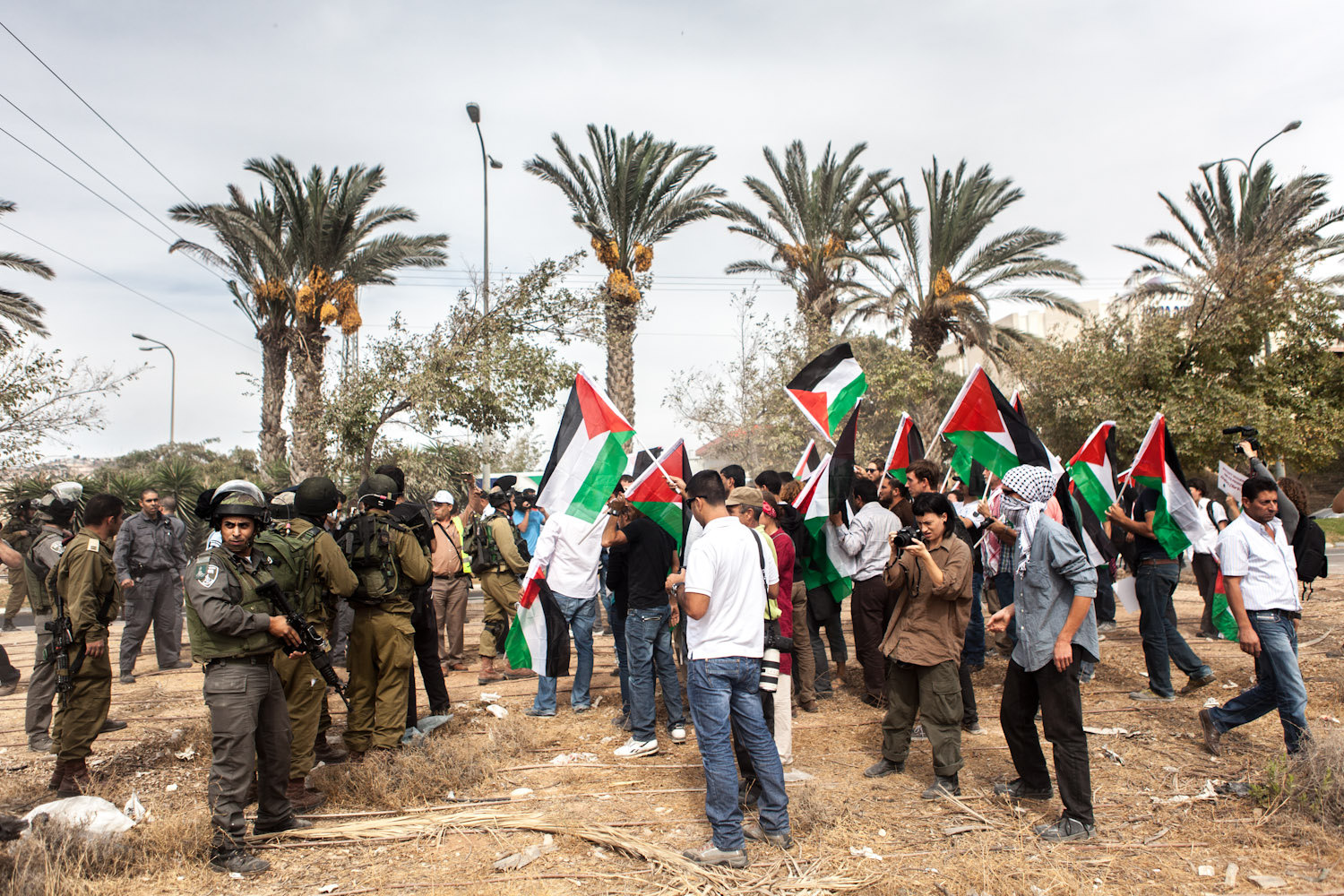Year: 2012
-
Night raid on family – two Palestinians abducted in Shuhada Street, Hebron
30 October 2012 | International Solidarity Movement, West Bank At approximately 2am Israeli occupation forces climbed down from the roof at the back of a family complex on Shuhada street to apprehend student Abed Al Salayma, age 20. Abed was blindfolded and led from his home a short time thereafter while his distraught mother remonstrated…
-
Picking olives in a cage
Journal by Ellie Marton 25 October 2012 | International Solidarity Movement, West Bank I spent Tuesday inside a cage. Not my usual way to spend a sunny Tuesday – but for the Palestinian farmers I was with, this is routine. This is because their land happens to be near the illegal Israeli settlement of…
-
URGENT – FUNDS NEEDED – International activists threatened with illegal deportation – UPDATED
25 October 2012 | International Solidarity Movement, West Bank DONATE HERE: https://palsolidarity.org/donate/ ————— UPDATE 26th October: international activist Elyana Belle, currently fighting an illegal deportation order, reports on her arrest and detention: During her arrest, Elyana received blows to her head and injuries to her neck by four Israeli police officers who dragged her from…



